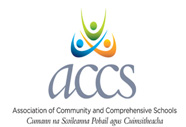![]()
Extra-Curricular Activities
Although the academic part of school life is very important, no school would be complete without a large range of after-school activities. A child will make the most of their education if they are in an environment in which they feel safe – one which provides opportunities for them to develop all their abilities. Academic programmes are at the heart of any school but extra-curricular activities are also vitally important. Our school has a rich and successful tradition both on the sports field and in many other activities such as drama and debating. A full list of the extra-curricular activitiies available in JTBCS can be seen in the menu the left of the screen.
Extra Curricular Activities provide students with an opportunity to develop a wide variety of skills including:
- Building Interpersonal Skills
- Teamwork
- Social Skills
- Promotes a health balanced lifestyle
- Contribute to their community
- Learning about self discipline and commitment
From strengthening the mind to encouraging better time management skills, extracurricular activities can help students succeed in much more than just their academic endeavours. Sports, for example, train students to maintain patience and resilience in the face of difficulty. These activities can also work to build professional skills that a classroom alone cannot always foster. A debate or speech club offers additional public speaking practice for students, which further builds upon oral presentation skills from class work. Sports, of course, provide excellent opportunities for team-building skills and training students to focus on long-term goals. Such a myriad of skills are invaluable when entering Third Level Education and indeed the workplace. Extracurricular activities are also fun and offer students the opportunity to spend time with others of similar interests. Students can meet friends from different social groups by membership in such activities.
Ironically, many students find that adding more commitments to their already coursework-filled schedules has the effect of improving time management. The student who is busy with coursework but also needs to balance other extracurricular activities is more likely to plan out time dedicated to each activity and less likely to procrastinate during downtimes. An extracurricular activity might even have the effect of “recharging” the brain after a day of rigorous schoolwork, allowing students to return to homework assignments with a refreshed mind.Such opportunities also allow students to follow interests outside of a standardized academic context. Students can also use these activities to explore interests they’ve never encountered, exposing students to a more diverse range of interests in students.

